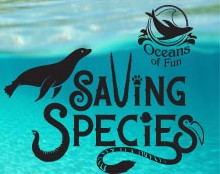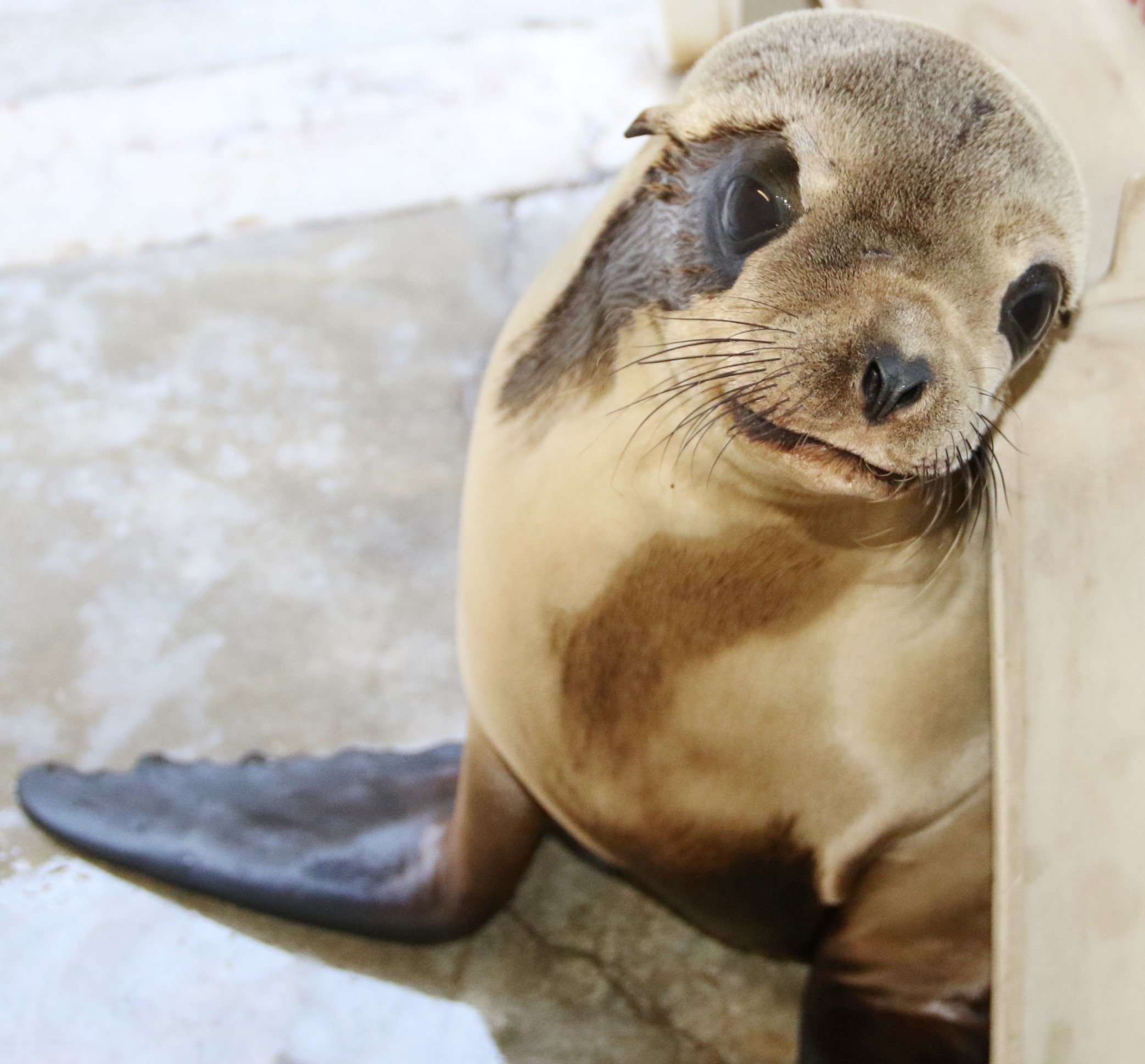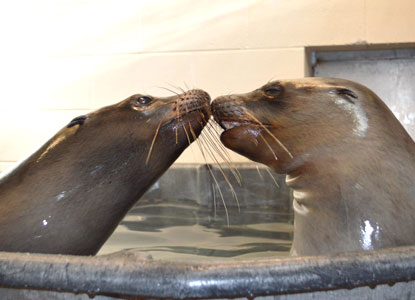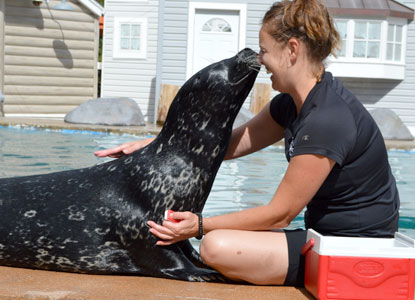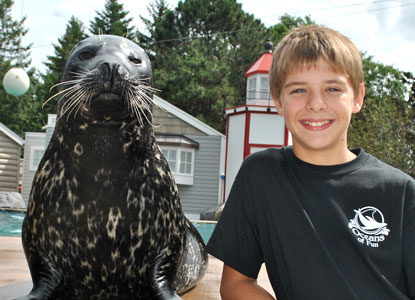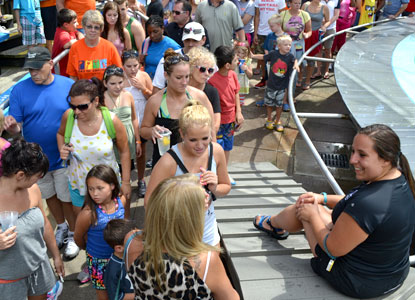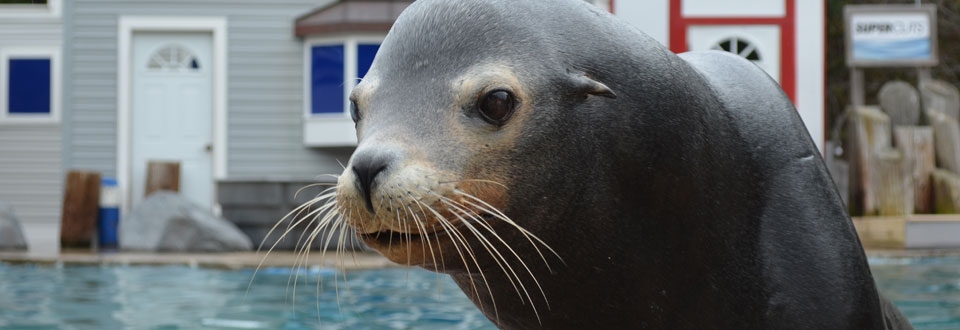
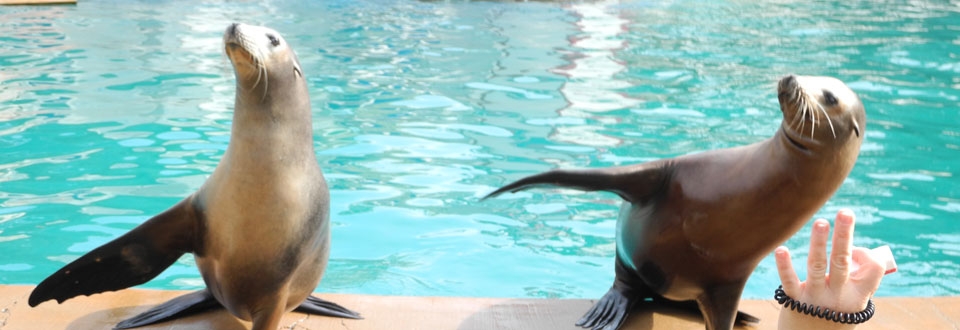
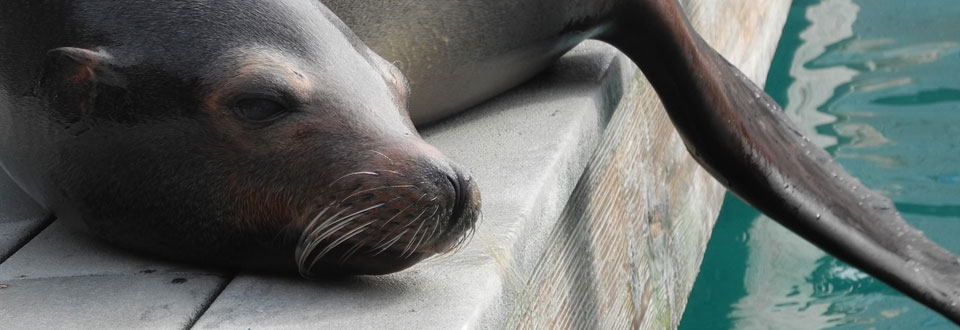
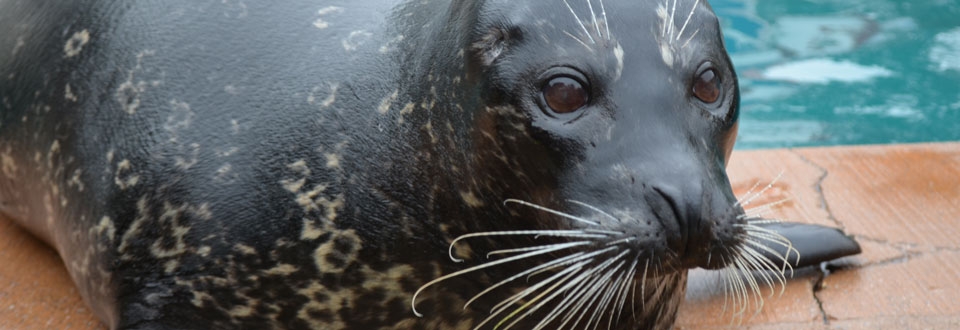
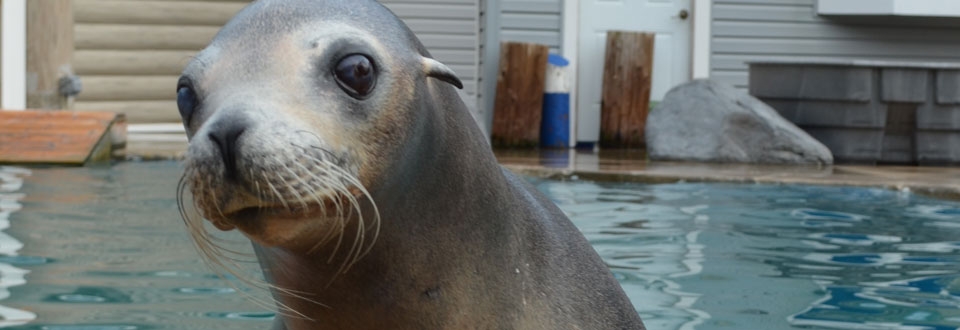
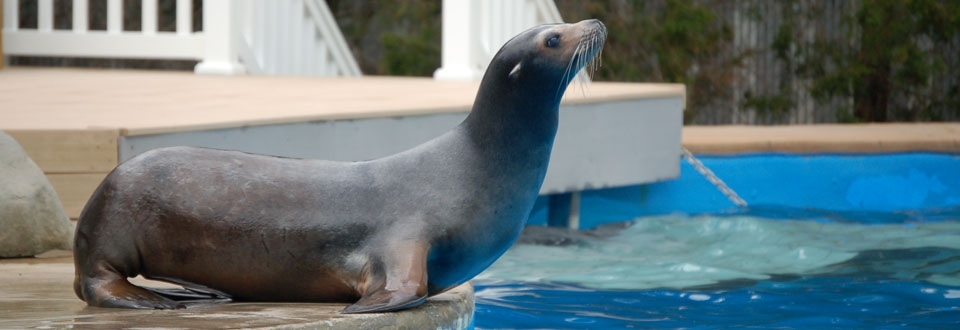
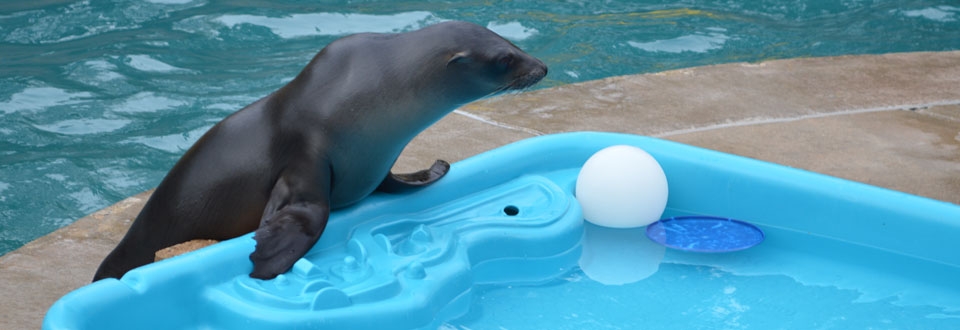
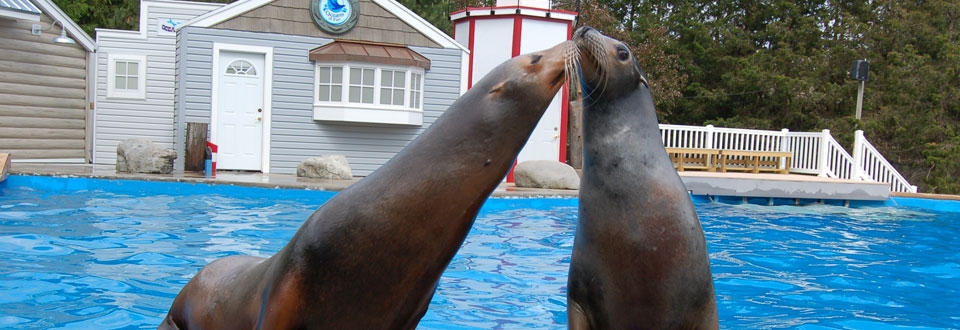
Newsletter - March 2014
Training Has Begun
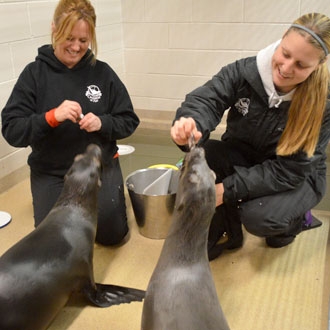 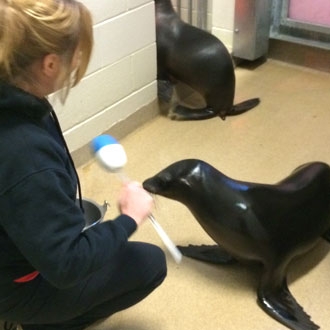 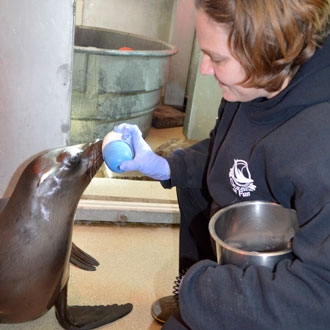
|
Over the past few months, Talise and Nalu have grown so much! Since Nalu’s arrival at the beginning of November, we have seen him blossom into an adventurous, curious and strong pup. When he was found dehydrated and malnourished on the California coast, he was too young to eat fish and he needed his mother’s milk to survive. Unfortunately, his mother was nowhere to be found. This meant that releasing Nalu back to the wild would not be an option; in order to survive he needed around the clock care and bottle feedings every 4 hours. Ocean Connections was asked to provide a permanent home for Nalu, and we gladly excepted.
Weaning Nalu and getting him to eat fish, quickly became a priority; at the same time we were in the process of weaning Talise as well. After several weeks of playing with fish, both pups discovered just how good fish can be! Now that the pups are eating fish consistently, their formal training has begun!
The very first step for both pups, is learning what a clicker is. Our clicker is used as a bridge, spanning the time span between when the correct behavior is preformed and when reinforcement is received. Talise and Nalu are now learning that when they hear a “click” good things, like fish come!
The pups quickly caught on to the clicker, and have now begun target training. This is where they learn to touch their nose to a small bead. Eventually they will learn to follow the target wherever it goes. By using this target, our trainers will be able to guide the pups step by step through all the different behaviors they will learn. The same training process is used with all of our animals!
In the middle of December, Talise joined Nalu at the Milwaukee County Zoo Animal Hospital, which provided Nalu with a much-needed playmate during the weaning process. Since their introduction, these two have become constant playmates. Wrestling and romping through the pool are their favorite games, and once they have worn each other out, they often snuggle up next to each other for a nice long nap.
Talise and Nalu will soon make their trek back to Ocean Connections! They will continue to build a relationship with their trainers, one that is built on trust. This trust is essential for the pups to be successful in their training. The pups will also meet all of their pool mates and will work on building relationships with all their flippered friends.
This spring is sure to be full of fun, learning and new adventures for Talise and Nalu. We are very excited to see their training progress and hope you will join us this spring and summer to see Talise and Nalu and their training progression first hand!
Trainer Spotlight: Kelly
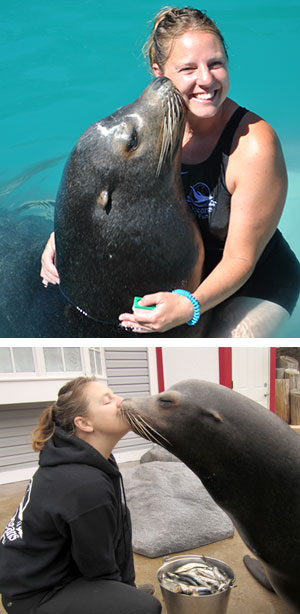 There is no better way to learn what it’s like to be a marine mammal trainer than to talk to one! Kelly has been with Ocean Connections for 18 years and is Director of Training and Husbandry. Kelly always puts forth 110% not only for our animals, but also for our staff. We sat down with Kelly to ask her a few questions about her life as a trainer.
There is no better way to learn what it’s like to be a marine mammal trainer than to talk to one! Kelly has been with Ocean Connections for 18 years and is Director of Training and Husbandry. Kelly always puts forth 110% not only for our animals, but also for our staff. We sat down with Kelly to ask her a few questions about her life as a trainer.
When did you begin at Ocean Connections?
I started my career as a volunteer at Ocean Connections in Late 1995-1996, the experience changed my life. In 1997 Ocean Connections launched their first season of interactive programs and I was privileged to be hired on as a Apprentice Trainer to assist in the beginning of an amazing journey. I have devoted the last 18 years to this wonderful organization. Each morning I wake up loving what I do and why I do it.
What is one of your most memorable moments so far as part of the Ocean Connections team?
I have so many incredible memories, but one that stands out was providing a "make a wish" experience to a young 10 year old girl. She had spent most of her life in the hospital and was not expected to survive the year. She always loved marine mammals but the doctors said she was not stable enough to travel. Her parents heard about OCEANS and asked if she could meet our animals...that program was the most amazing experience. Slick, our big sea lion boy, did not hesitate to jump out of the pool and cuddle up close to the young girl in her wheel chair. Her parents said they had never seen her smile so BIG. I always knew our animals were amazing and made a big difference but to see her arms around Slick...I will never forget the joy it brought to her and her family that day :)
What is your favorite part of your day at Ocean Connections?
The Animals - they are silly, entertaining, amazing and just so exciting to work with. Yes, it is fun to train them but not a day goes by when they don’t teach me something too. It is amazing to be able to provide and share these experiences with our guests. It is by far one of the coolest jobs!
What advice would you give someone looking to enter the marine mammal field?
It is an extremely rewarding but hard field to get your foot in the door. If you are hard working, passionate, dedicated and persistent you will be successful. I encourage gaining as much hands on experience as possible. Career paths in psychology, biology or zoology are a great start. Most college students devote their summers to completing internship and volunteer positions in organizations just like OCEANS. This is a very rewarding field to be part of, so it is worth all the hard work to get started.
What are 3 of the most important characteristics needed to be a successful marine mammal trainer?
1. Passion, this field is a very passion driven career. We love our animals and we love the world around us. We want to do all we can to teach others about our beautiful animals and how to protect our earth.
2. Dedication: Trainers work very long hours, whether it is staying late to; clean an animal area, finish training sessions, providing an interactive program, assisting with a medical procedure, witnessing the birth of sea lion at 2am, or monitoring/providing middle of the night pup feedings; well let’s just say it takes a lot of hard work and dedication.
3. Experience: One is not born to train but becomes a successful trainer through experiences, exposure and proper mentorship. It is not a field you "master", as the animals continue to teach you new things daily. There is no doubt we love the animals we work with, but that alone does not make a successful trainer. Passion and dedication to our mission is what drives me to be better at what I do each day. I always base everything I do, and every decision I make, on what is best for the amazing animals entrusted under my care.
Featured Program: Summer Camps

Join Ocean Connections this summer for the ultimate camp experience! If your child is between the ages of 7 - 12, we have a variety of camps for you to choose from. Our summer camps offer the chance to meet our seals and sea lions up close and personal while learning about marine mammals, animal care, training and conservation. From full week programs that immerse campers in the field of marine mammal science to 2 to 3 day specialty camps focused on animal behavior and animal training, Ocean Connections has a program that appeals to every animal lover out there. As an Ocean Connections camper, children get the chance to:
- Learn about seals, sea lions and other marine mammals.
- Explore animal adaptations and habitats.
- Train seals and sea lions.
- Interact with marine mammals and participate in sea lion presentations.
- Explore the Milwaukee County Zoo.
- Create works of art with the help of our flippered friends.
Be sure to check out all of the camps we offer today and make your reservation here! Be sure to take advantage of our Early Bird Camp Special and receive 15% off of any camp reservation made from March 11th – 20th!
Conservation Corner: NNOCCI Study Circle
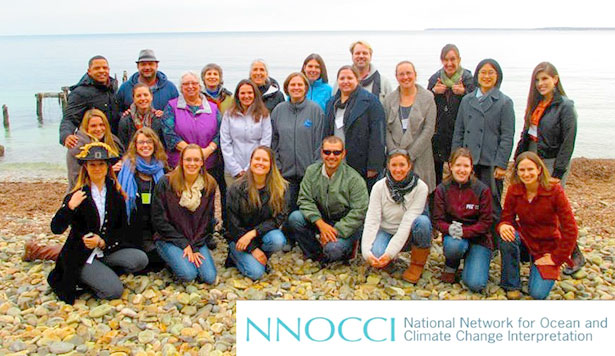
This past fall, Ocean Connections took part in the National Network of Climate Change Interpretation (NNOCCI), a collaborative effort led by the New England Aquarium, Associations for Zoos and Aquariums, Monterey Bay Aquariums and several other facilities. NNOCCI is a grant-funded project that teaches educators in informal science facilities, like Ocean Connections, how to best present climate change to our visitors and guests.
Through in-person meetings, conference calls and webinars, two staff members spent time learning about strategic framing. Strategic framing is a technique used to successfully educate visitors about environmental issues and inspire them to want to make a difference. The strategies learned have been scientifically tested by the Frameworks Institute to see how the public responds and if the topic is easily understood.
A huge part of the Ocean Connections mission is to educate the public about marine mammals, the environment and conservation. By being a part of this program, Ocean Connections has gained invaluable knowledge about how to reach our guests and inspire them to become agents of change for our environment.
Once the training phase was complete, a staff development meeting was held for all of our staff and volunteers to attend. This meeting allowed the rest of our staff who had not gone through the training process, to learn about the techniques of strategic framing as well.
So what is Climate Change Anyway?
 Actions such as burning fossil fuels like coal, oil and gas, release an excess amount of carbon dioxide into the atmosphere. This build up creates a heat-trapping blanket around the earth that does not allow the earth’s excess heat to escape, which results in an increased average global temperature.
Actions such as burning fossil fuels like coal, oil and gas, release an excess amount of carbon dioxide into the atmosphere. This build up creates a heat-trapping blanket around the earth that does not allow the earth’s excess heat to escape, which results in an increased average global temperature.
Since the ocean absorbs much of the excess heat, one of the many effects of increased temperatures is a warmer ocean. Many fish populations depend on specific water temperatures to grow, reproduce and survive. When the water becomes too warm, fish may move to deeper and colder waters. When fish populations move, many predators can be negatively affected. For example, sea lions will spend more time out at sea hunting, therefore leaving behind the safety of land areas and their pups for longer periods of time, risking their survival.
There are many things that we can all do together to help reduce our carbon emissions and preserve the world around us for generations to come. By supporting environmentally friendly organizations, regulations and using sustainable energy sources, we can make a difference together for the seals and sea lions in the wild.




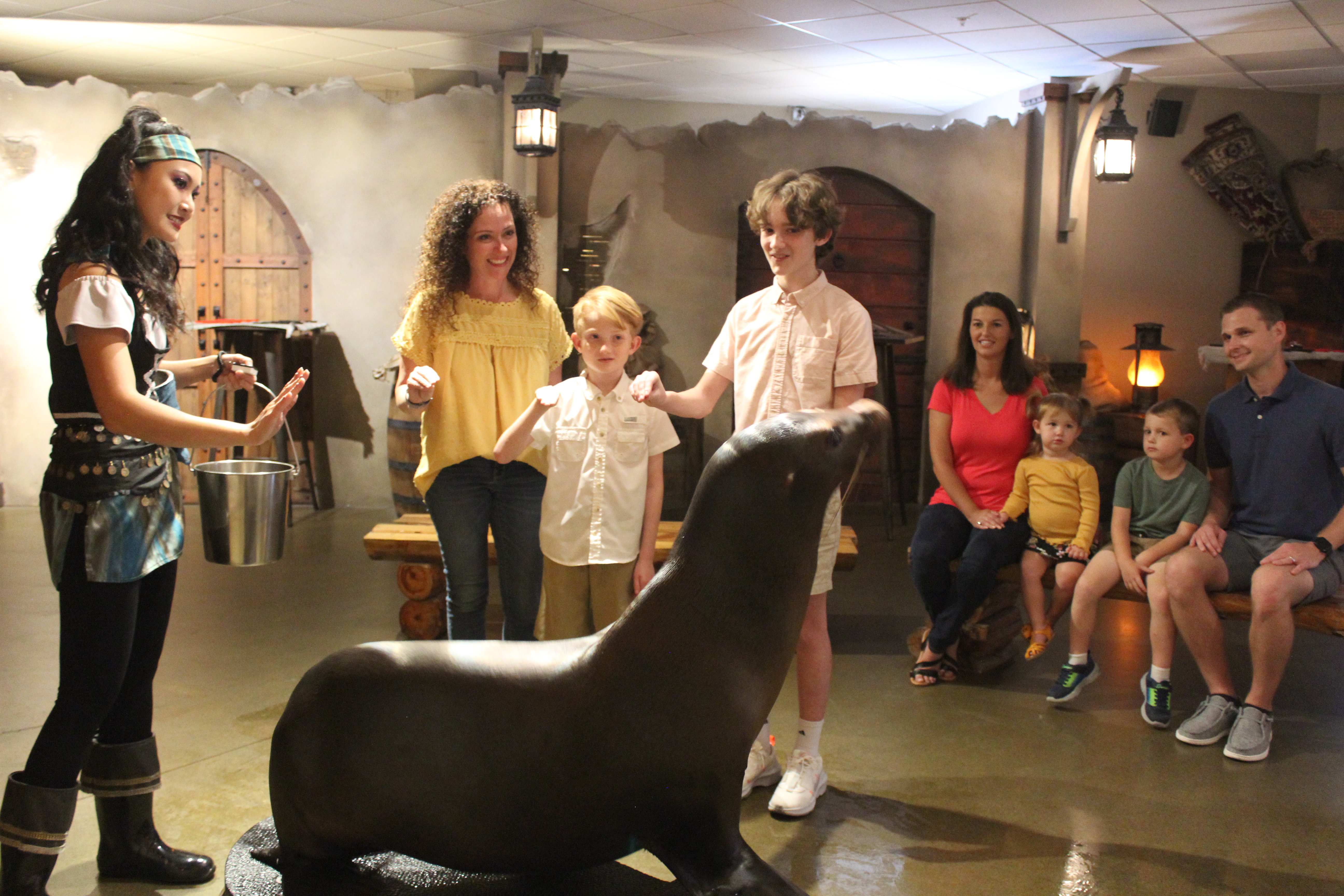 Animal Encounter
Animal Encounter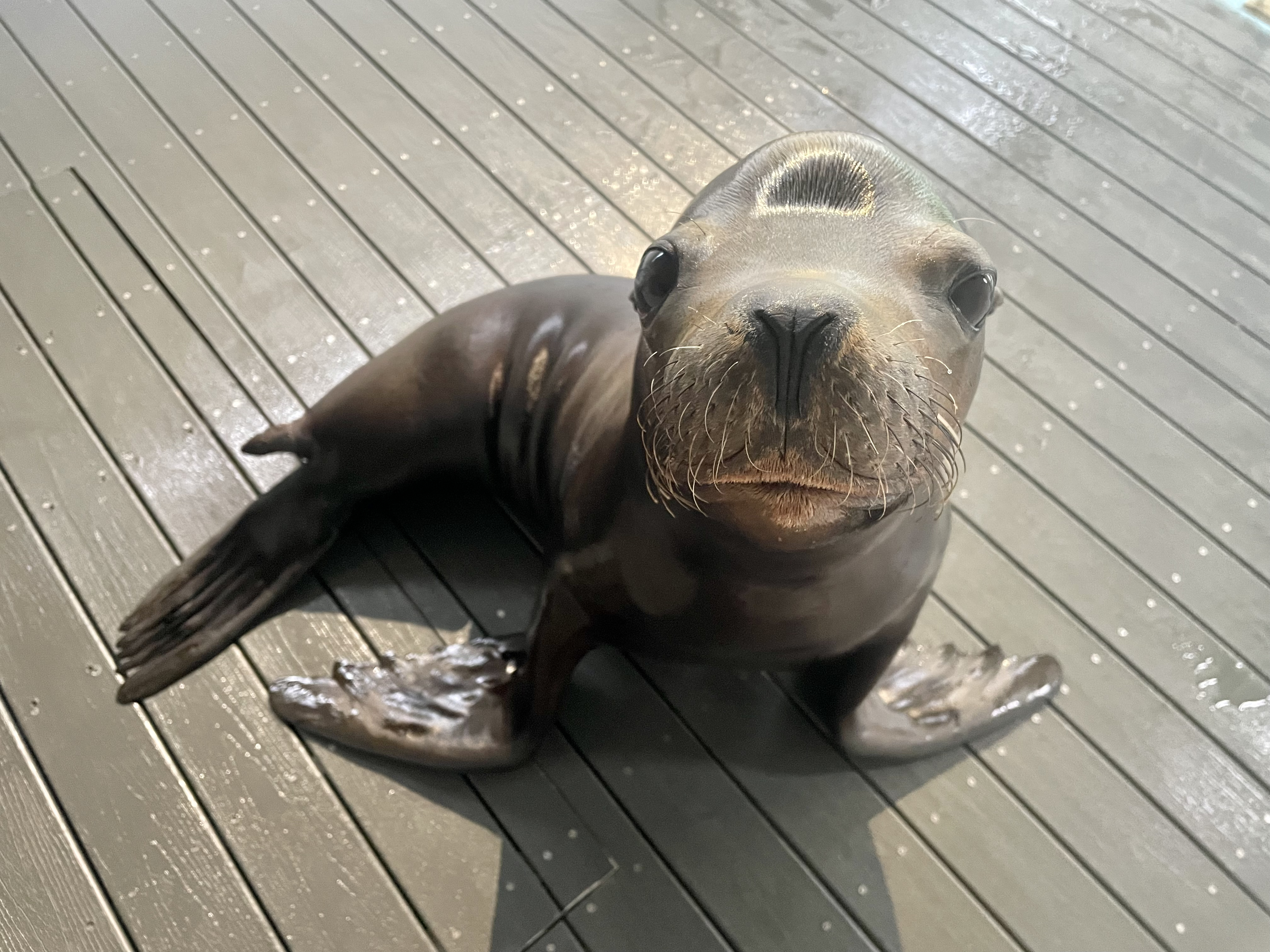 Our Locations
Our Locations
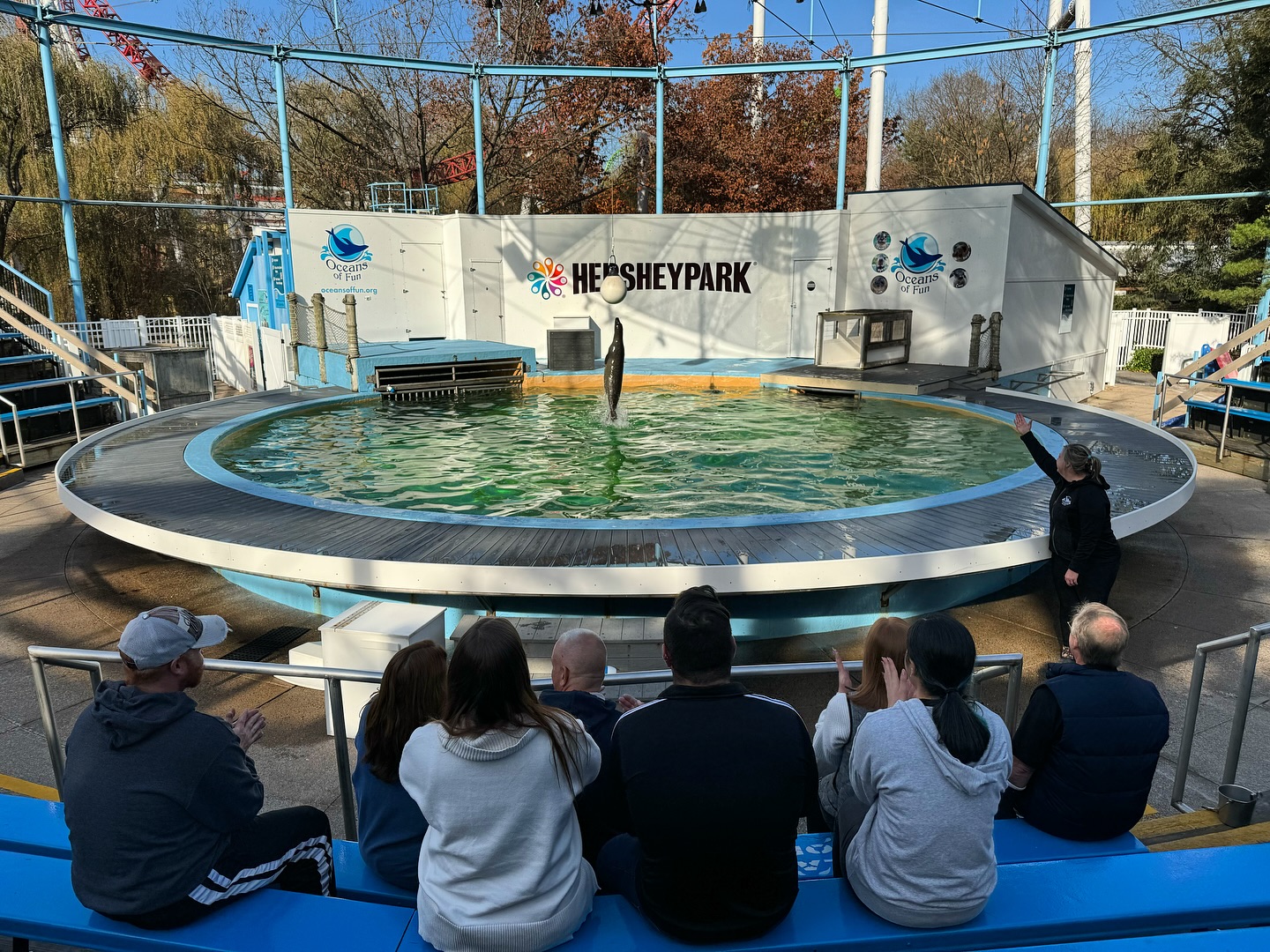 Family Fun
Family Fun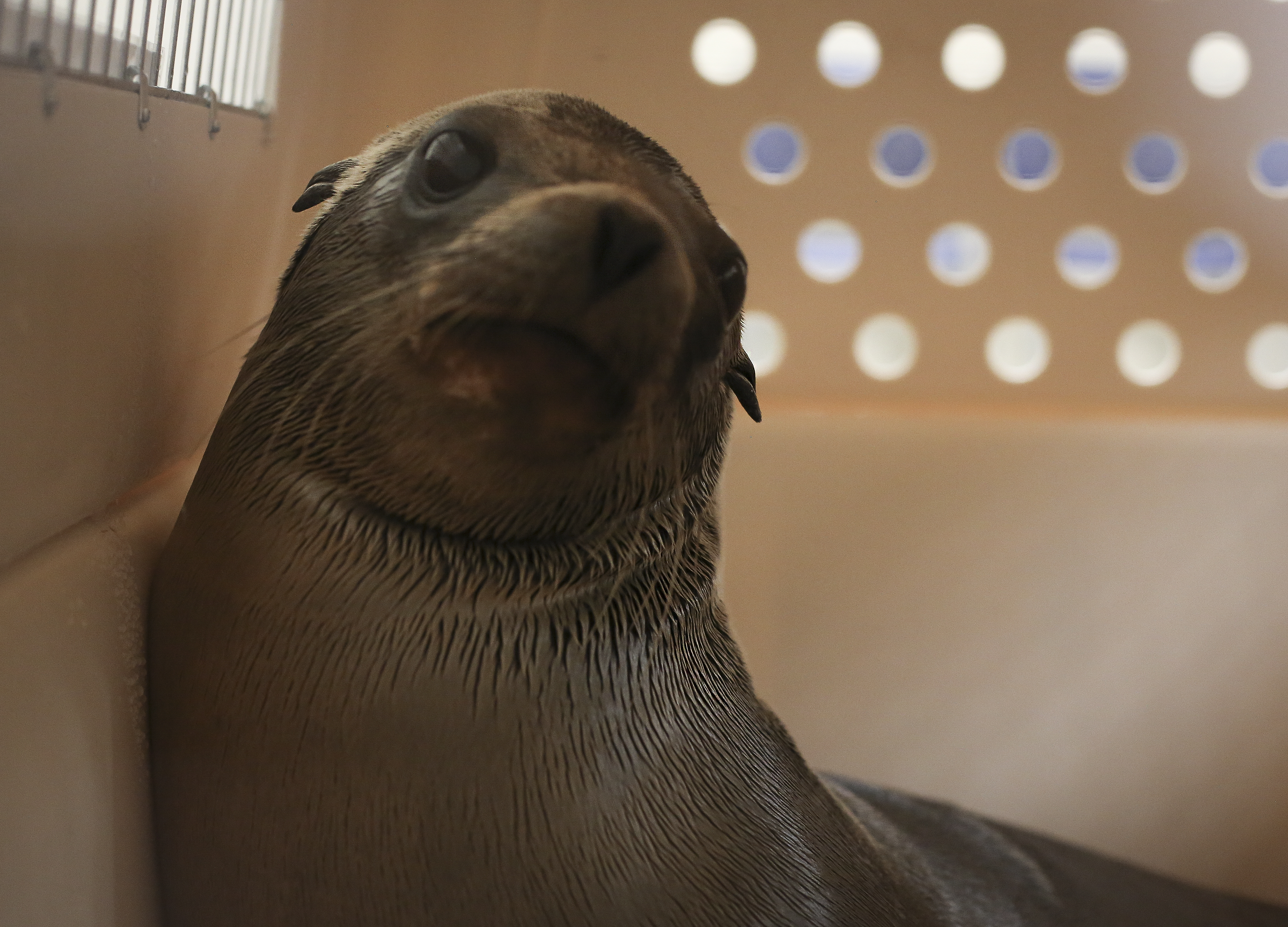
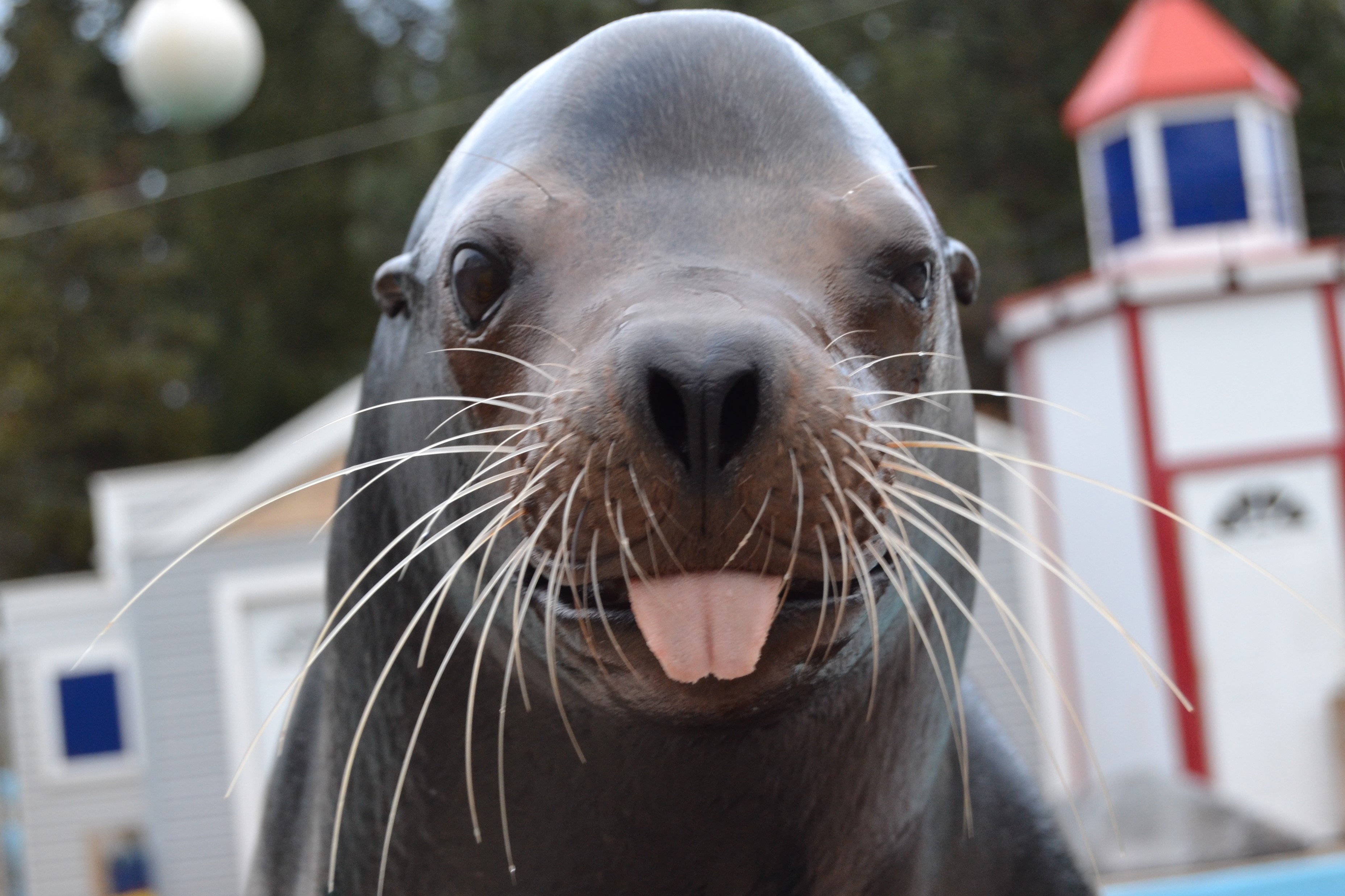
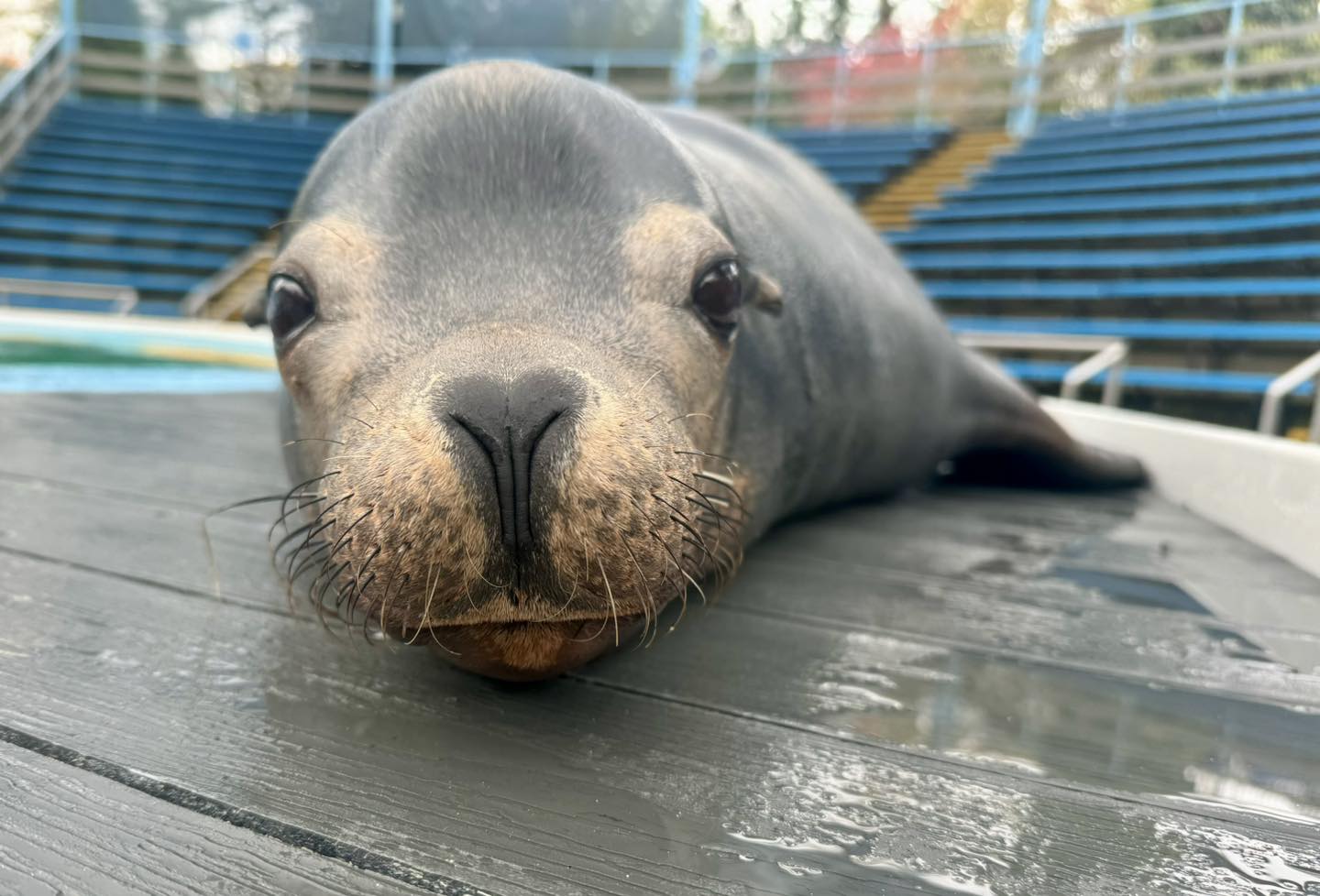 Meet Ripley!
Meet Ripley!
